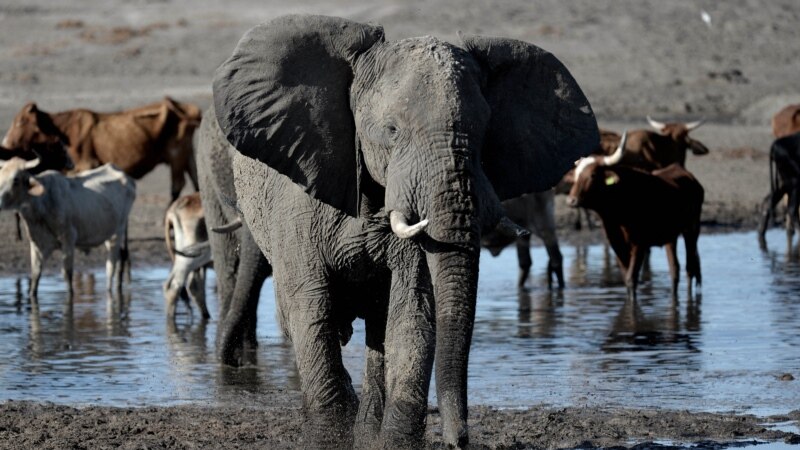Botswana says it will use next week’s U.N. Environment Assembly to lobby against a proposed European ban on importing wildlife trophies from Africa.
This comes as Botswana’s former president visits the U.K. to lobby in favor of the ban, defying his country’s position.
Botswana’s acting minister of environment and tourism, Machana Shamukuni, told Parliament that he would be present when the U.N. Environment Assembly convenes Monday in Nairobi. He said he would be reminding like-minded delegates to continue to lobby against Europe’s efforts to ban trophy hunting.
Trophy hunting is the practice of killing large animals such as elephants, lions and tigers for sport. Hunters often keep the heads or other parts of the animals for display.
In 2022, the European Parliament announced plans to introduce a ban on the import of wildlife trophies. Conservationists are concerned that continued hunting will further deplete wildlife populations, which are declining in many areas from loss of habitat and poaching.
However, Botswana has the world’s largest elephant population at more than 130,000, and the giant animals are often in conflict with humans.
Investigation urged
Siyoka Simasiku is director of the Ngamiland Council of Nongovernmental Organizations, a conservation coalition, and has been involved in the campaign against the proposed wildlife trophy import bans. He said authorities in Europe needed to travel to southern Africa to get firsthand information about how limited elephant hunting helps Botswana.
“This has been the call of the community — to invite European countries, including the U.K., to come directly to their areas to witness what the benefits from this wildlife have actually provided them, and also to see the damages that are also brought about by wildlife within their areas in terms of crop damage, competition for water holes and loss of lives,” Simasiku said. “These are things that are dear to our communities.”
Currently, Botswana issues about 300 elephant hunting licenses per year, generating approximately $3 million for the country, separate from the other revenues the hunters generate.
Meanwhile, former Botswana President Ian Khama this week arrived in the United Kingdom to drum up support for the hunting ban.
While in office, Khama enacted a hunting ban in 2014, but his successor, President Mokgweetsi Masisi, lifted the moratorium in 2019.
Simasiku said wildlife communities in Botswana oppose Khama’s recent actions.
“The Botswana communities strongly oppose this move where the former president advocates for a trophy hunting ban in London,” he said. “They have expressed concerns about the negative impact on their livelihoods and conservation efforts. They argue that a blanket ban overlooks their role in sustainable wildlife management and urge for a more inclusive approach that considers their perspectives and needs.”
No European Union ban on wildlife trophy imports has materialized so far, but the U.K. House of Lords considered a ban that failed to pass, while Germany and France are considering similar prohibitions.
Last month, Belgium succeeded in introducing a ban, amid calls for the rest of Europe to follow suit.

